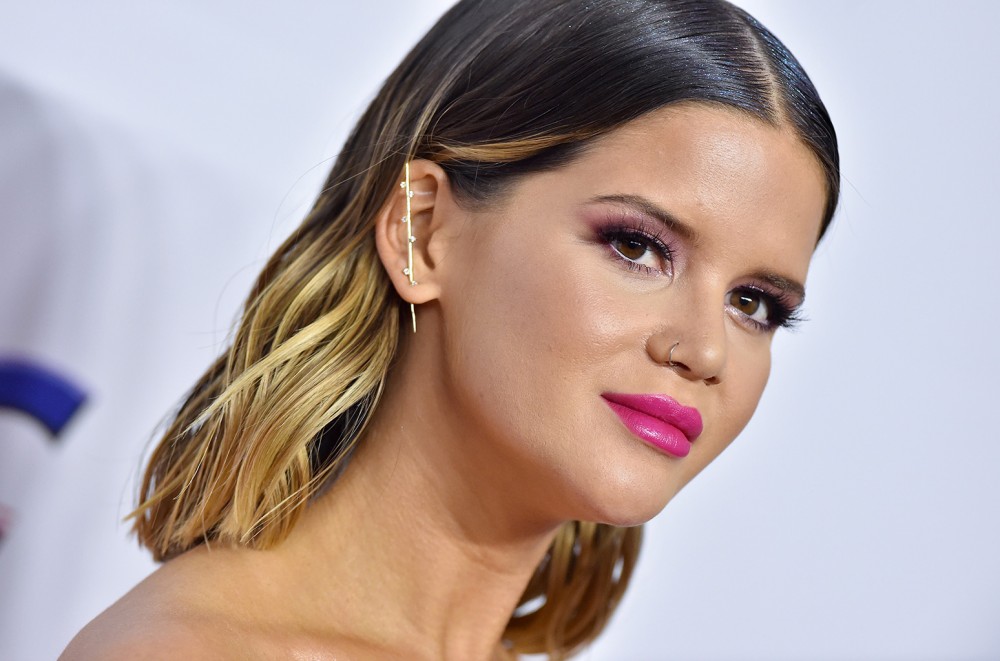
Programmers Suggest Ways to Get More Women onto Radio During Country Radio Seminar Panel
“2020 needs to be the year of the female artist” at country radio declared David Corey, country brand manager for the Beasley Media Group and program director at WKLB Boston at the launch of the Country Radio Seminar panel All the Singles, Ladies: Breaking Female Artists on Thursday (Feb. 20) in Nashville.
Upping the airplay for women at country radio—which hovers around 10 percent in the Top 20, according to SongData — has been a lightning rod topic for six years now and finally it seems as though the situation may be improving: Maren Morris’s “The Bones” is the first chart topper by a solo female artist on the Country Airplay chart to stay at No. 1 for two weeks since 2012. Also, for five consecutive weeks, there have been five female-inclusive acts (solo female, duets or co-ed acts including women) in the Top 20 of the Country Airplay chart, which measures terrestrial radio play based on data from Nielsen Music/MRC Data.
The programmers on the panel, moderated by Katie Dean, MCA Nashville’s senior VP of promotion, were focused on solutions at radio as opposed to rehashing past stats the reflect how dismal the situation is for women country artists.
Among their suggestions:
Play more new artists in general— male and female, suggested Nate Deaton, general manager, KRTY San Jose. “I don’t think it’s a female artist problem, its a new artist problem,” Deaton said. “There’s a tremendous lack of new artist airplay for both genres. We’re trying on our catalog and not breaking new artists at radio.”
Stop relying so much on research—or at least make the research playing field level. “Did you really give the song a chance” before soliciting caller research, asks Johnny Chiang, director of operations for Cox Media Group, which includes Houston’s KKBQ. “You need to give it 500-600 spins at least to get a real take.” Corey agreed, noting that songs by female artists often test poorly in caller research because they have not received as many spins as their male counterparts or because they languish in overnights. “When I look at WKLB or any of our Beasley stations, there aren’t a ton of women that test through, but I think they weren’t exposed like men were. A song that’s played 1,000 times is going to test better than one played 100 times.”
Ditch the idea that listeners don’t want to hear women—whether as artists or as air personalities. Chiang’s on-air staff at KKBQ is led by all females, but he admits he had to fight to make that happen. “I put the question in our strategic study: ‘Would you listen to four female DJs in a day?’ And the response we got back was ‘Are you nuts? Why are you even asking that question?’”
Break the rules, suggested Kris Daniels, senior manager of music programming at Radio Disney and Radio Disney Country, the latter of whose programming runs between 60 and 70 percent female. “We don’t wait until Carly [Pearce] hits 40 on the chart. If it’s a good song we’re going to play it.” She also challenged the rule that stations can’t play back-to-back songs by female artists, a notion the other programmers disavowed. “It’s ridiculous not to play two females in a row. Why wouldn’t you play Gone West following Miranda Lambert,” Chiang asked.
Nashville labels need to sign more female artists. “It’s critical for labels to sign more female artists, Corey said. “If there’s any chance that the radio groups” will commit to playing more women, “we need labels to sign more.” He added that he would add a beautiful sweeping ballad, “What Are You Gonna Tell Her,” that Mickey Guyton unveiled during Universal Music Group Nashville’s luncheon at the Ryman today, “tomorrow,” if it was serviced to him. The combined current country rosters for BBR Music Group, Big Machine Label Group, Sony Nashville, Universal Music Group Nashville and Warner Music Nashville tally 134 acts, according to their websites. Of that amount, 38 —or 28.3 percent— are female solo acts or groups that include females.
Radio is paying more and more attention to streaming, which shows a sharp increase in listenership for female artists, at least at Amazon. Monthly voice requests for female country artists on Amazon Music Alexa have grown nearly 60% between July 2019 and January in the US, according to Emily Cohen, Amazon Music’s senior country music curator.
Step out on a limb, suggested Lambert’s manager Marion Kraft. “We need more shepherds and less sheep,” she suggested. Furthermore, she challenged programmers to not treat women equally in 2020, but treat them a little better than their male counterparts. “We do want to be treated better for just this year,” she said. “Starting next year, you can treat us the same… [but] if you guys don’t have these great females in your format anymore, you guys are going to be really sad…The fan goes where they play the music they want to hear. If you don’t give them what they want, they have [other] places to go now.”